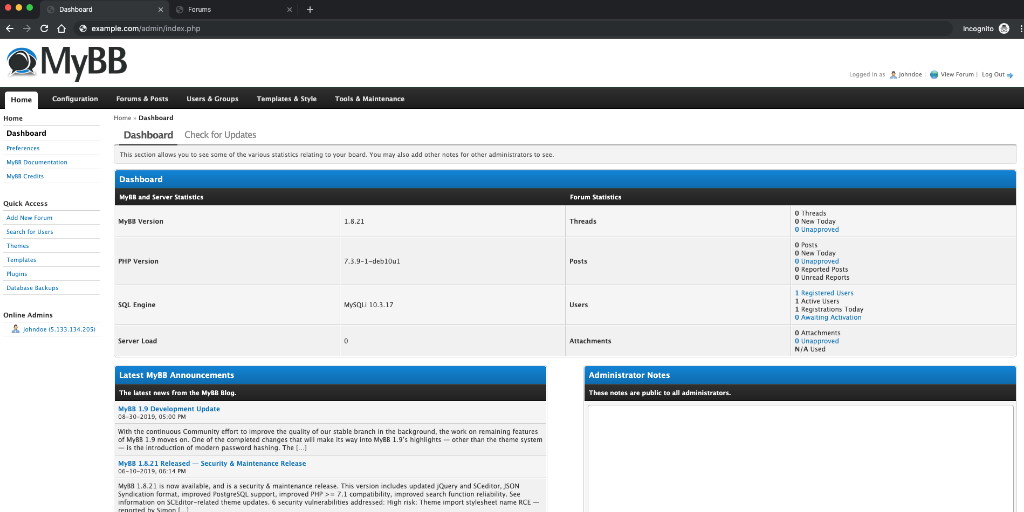MyBB is a robust and flexible open-source forum program, renowned for its intuitive interface. With hundreds of plugins and themes available, extending its features or transforming its appearance is a breeze.
In this guide, you’ll learn how to install and configure the MyBB forum software on a Debian 10 (buster) system.
Requirements
Ensure your system meets the following requirements for MyBB 1.8 and the Merge System 1.8:
- PHP version 5.2 or higher (PHP 7.3 is recommended).
- Database Options:
- MySQL 5.0 or newer, PostgreSQL 8.1 or newer, SQLite 3 or newer.
Recommendation: PostgreSQL 10.0 or MySQL 8.0.
- MySQL 5.0 or newer, PostgreSQL 8.1 or newer, SQLite 3 or newer.
- Web Server: Apache, Nginx, Lighttpd, or IIS.
- PHP Extensions needed:
- SimpleXML
- mbstring
- gd
- Database-specific PHP extensions
NOTE: Remember to replace example.com with your own domain name.
Prerequisites
- A Debian 10 (buster) operating system.
- A non-root user with
sudoprivileges.
Initial Steps
Verify your Debian version:
lsb_release -ds # Debian GNU/Linux 10 (buster)
Configure the timezone:
sudo dpkg-reconfigure tzdata
Update your system packages to ensure you have the latest security patches and updates:
sudo apt update && sudo apt upgrade -y
Install essential packages for Debian administration:
sudo apt install -y curl wget vim git unzip socat bash-completion apt-transport-https
Step 1 – Install PHP and Required PHP Extensions
Install PHP along with the necessary extensions:
sudo apt install -y php php-cli php-fpm php-gd php-mbstring php-xml php-mysql php-pgsql
View PHP compiled modules:
php -m # Output includes: ctype, curl, exif, fileinfo, etc.
Check the PHP version:
php --version # Sample Output: # PHP 7.3.9-1~deb10u1 (cli) (built: Sep 18 2019 10:33:23) ( NTS ) # Copyright (c) 1997-2018 The PHP Group # Zend Engine v3.3.9, Copyright (c) 1998-2018 Zend Technologies # with Zend OPcache v7.3.4-2, Copyright (c) 1999-2018, by Zend Technologies
PHP-FPM automatically starts on Debian 10; move to the next step.
Step 2 – Install acme.sh Client and Obtain Let’s Encrypt Certificate (Optional)
While not mandatory, securing your forum with HTTPS improves security. Use acme.sh, a simple shell script, to obtain a TLS certificate from Let’s Encrypt.
Install acme.sh:
sudo su - root git clone https://github.com/Neilpang/acme.sh.git cd acme.sh ./acme.sh --install --accountemail your_email@example.com source ~/.bashrc cd ~
Verify acme.sh version:
acme.sh --version # v2.8.2
Acquire RSA and ECC/ECDSA certificates for your domain/hostname:
# RSA 2048 acme.sh --issue --standalone -d example.com --keylength 2048 # ECDSA acme.sh --issue --standalone -d example.com --keylength ec-256
For test certificates, include the --staging flag.
After executing the commands, your certificates and keys are available at:
- RSA:
/home/username/example.com - ECC/ECDSA:
/home/username/example.com_ecc
List issued certificates:
acme.sh --list
Create a directory to store your certificates:
mkdir -p /etc/letsencrypt/example.com sudo mkdir -p /etc/letsencrypt/example.com_ecc
Install/copy certificates to /etc/letsencrypt directory:
# RSA acme.sh --install-cert -d example.com --cert-file /etc/letsencrypt/example.com/cert.pem --key-file /etc/letsencrypt/example.com/private.key --fullchain-file /etc/letsencrypt/example.com/fullchain.pem --reloadcmd "sudo systemctl reload nginx.service" # ECC/ECDSA acme.sh --install-cert -d example.com --ecc --cert-file /etc/letsencrypt/example.com_ecc/cert.pem --key-file /etc/letsencrypt/example.com_ecc/private.key --fullchain-file /etc/letsencrypt/example.com_ecc/fullchain.pem --reloadcmd "sudo systemctl reload nginx.service"
Certificates automatically renew every 60 days. Exit root:
exit
Step 3 – Install MariaDB and Create a Database for MyBB
Install the MariaDB server:
sudo apt install -y mariadb-server
Check MariaDB version:
mysql --version # mysql Ver 15.1 Distrib 10.3.17-MariaDB, for debian-linux-gnu (x86_64) using readline 5.2
Secure MariaDB by running the security script. Set a password for the root user:
sudo mysql_secure_installation
Response to prompts:
Would you like to setup VALIDATE PASSWORD plugin? N New password: your_secure_password Re-enter new password: your_secure_password Remove anonymous users? [Y/n] Y Disallow root login remotely? [Y/n] Y Remove test database and access to it? [Y/n] Y Reload privilege tables now? [Y/n] Y
Access MariaDB as root and create an empty database and user for MyBB:
sudo mysql -u root -p # Enter password mariadb> CREATE DATABASE dbname; mariadb> GRANT ALL ON dbname.* TO 'username' IDENTIFIED BY 'password'; mariadb> FLUSH PRIVILEGES; mariadb> exit
Replace dbname, username, and password with your specifics.
Step 4 – Install and Configure Nginx
Install Nginx from the Debian repository:
sudo apt install -y nginx
Verify Nginx version:
sudo nginx -v # nginx version: nginx/1.14.2
Configure Nginx by creating a new configuration file:
sudo vim /etc/nginx/sites-available/mybb.confInsert the following configuration:
server {
listen 80;
listen 443 ssl;
ssl_certificate /etc/letsencrypt/example.com/fullchain.pem;
ssl_certificate_key /etc/letsencrypt/example.com/private.key;
ssl_certificate /etc/letsencrypt/example.com_ecc/fullchain.pem;
ssl_certificate_key /etc/letsencrypt/example.com_ecc/private.key;
server_name forum.example.com;
root /var/www/mybb;
location / {
index index.php;
}
# Deny access to internal files.
location ~ /(inc|uploads/avatars) {
deny all;
}
location ~ \.php$ {
fastcgi_pass unix:/run/php/php7.3-fpm.sock;
fastcgi_param SCRIPT_FILENAME $document_root$fastcgi_script_name;
include fastcgi_params;
}
}
Activate the new configuration by linking it to the sites-enabled directory:
sudo ln -s /etc/nginx/sites-available/mybb.conf /etc/nginx/sites-enabled/
Verify and reload Nginx configuration:
sudo nginx -t sudo systemctl reload nginx.service
Step 5 – Install MyBB
Create the document root directory:
sudo mkdir -p /var/www/mybb
Download and unzip MyBB:
cd /var/www/mybb sudo wget https://resources.mybb.com/downloads/mybb_1821.zip sudo unzip mybb_1821.zip sudo mv /var/www/mybb/Upload/* /var/www/mybb
Remove unnecessary files:
sudo rm mybb_1821.zip sudo rmdir Upload
Adjust file permissions:
sudo chown -R www-data:www-data /var/www/mybb
Complete the installation by visiting http://example.com/install. For admin access, use /admin. Remove the installation directory after the setup:
sudo rm -rf /var/www/mybb/install/
Step 6 – Complete the MyBB Setup
Open the MyBB installation wizard in your web browser:
Click “Next” on the welcome page:
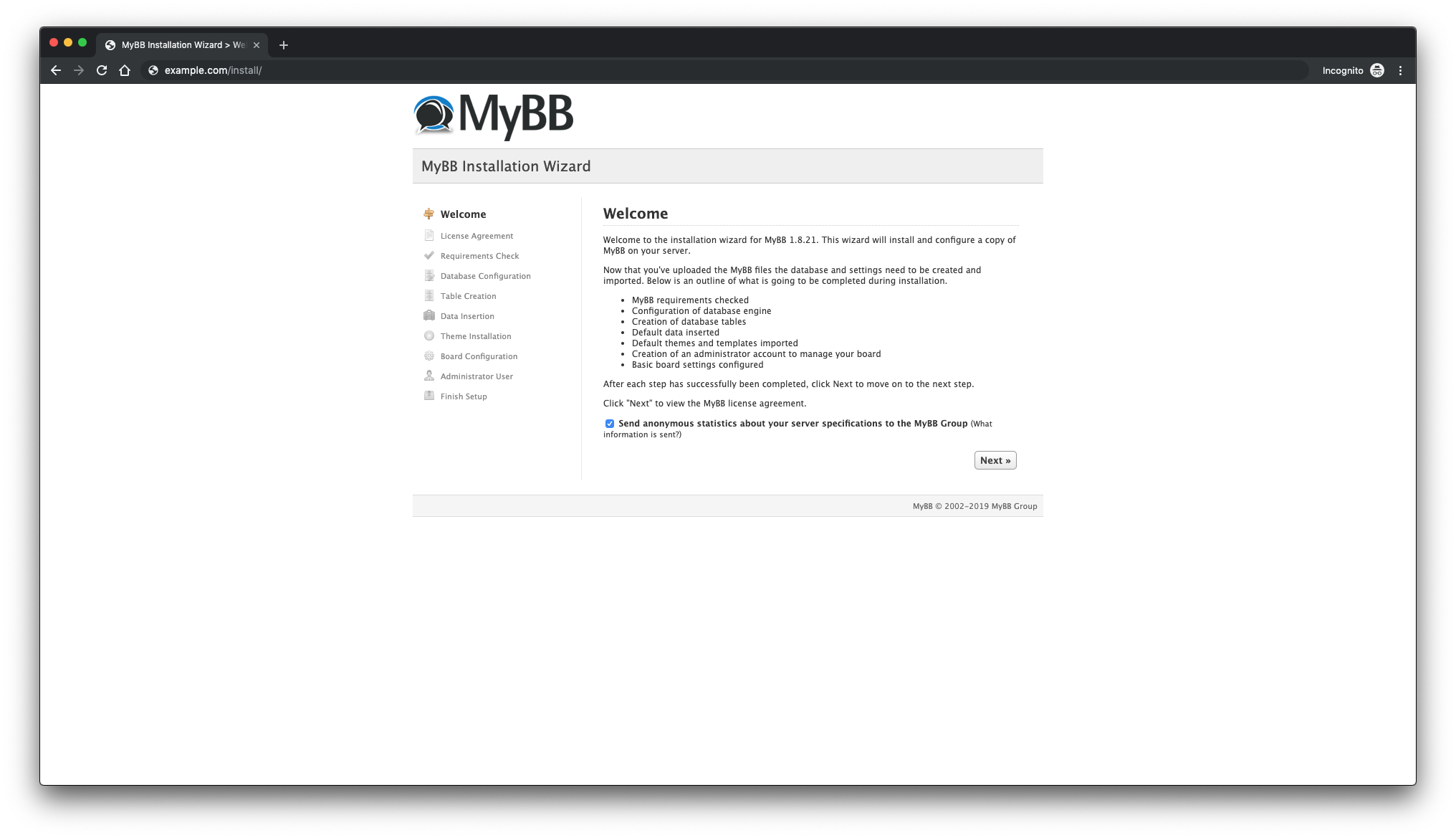
Review and accept the MyBB license:
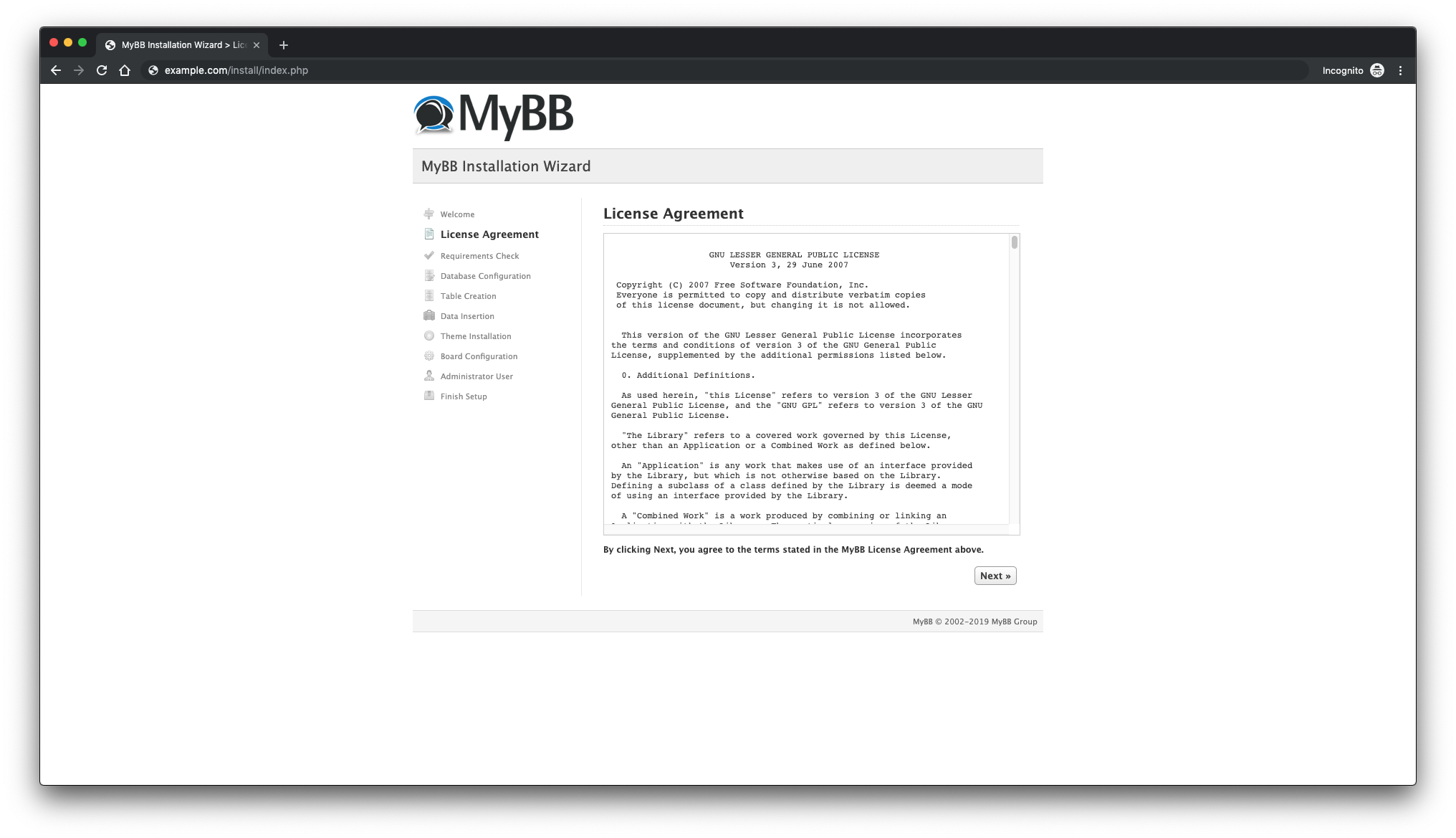
Ensure your server meets requirements and click “Next”:
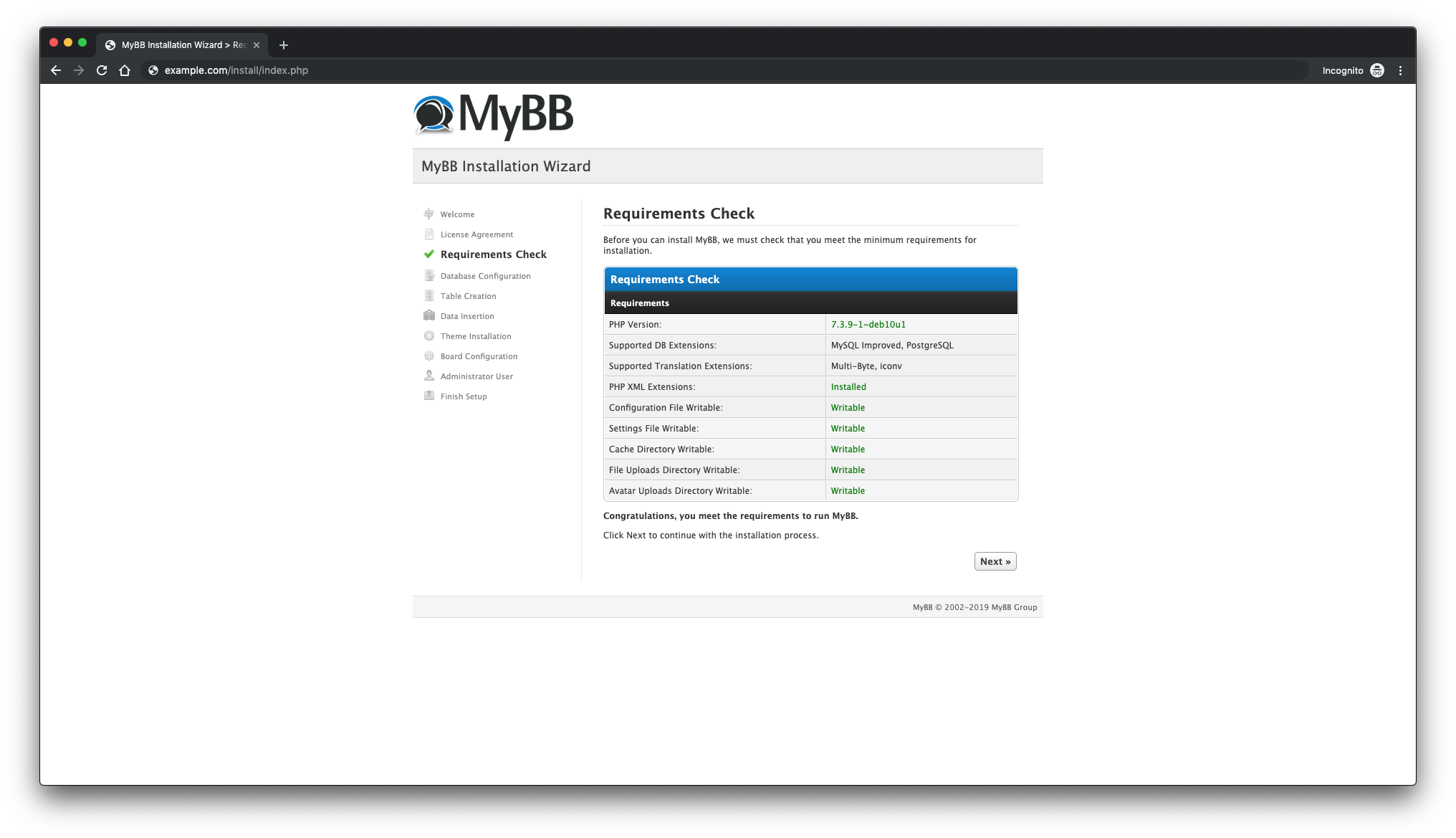
Configure the database and proceed by clicking “Next”:
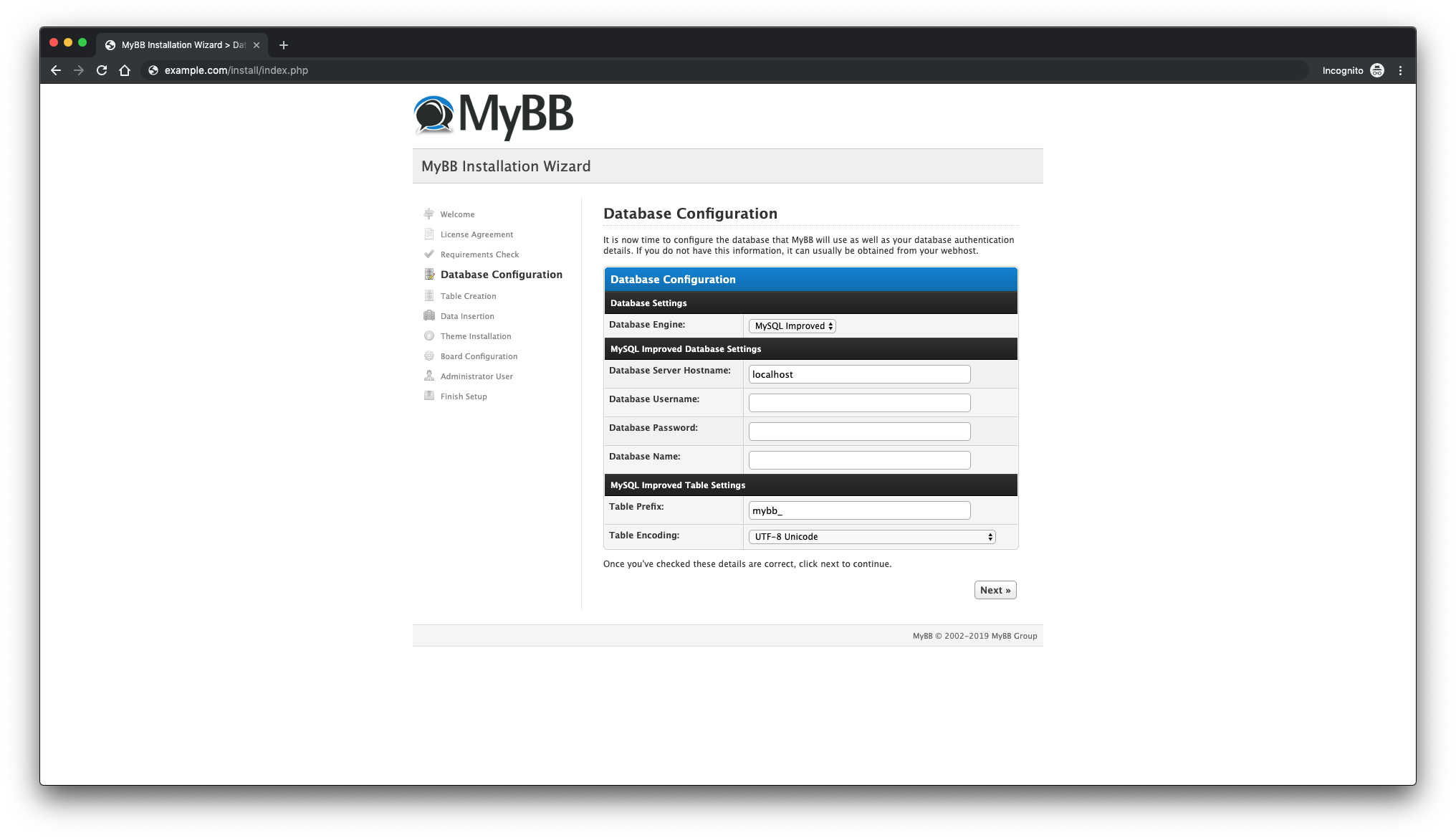
Insert database tables by proceeding with “Next”:
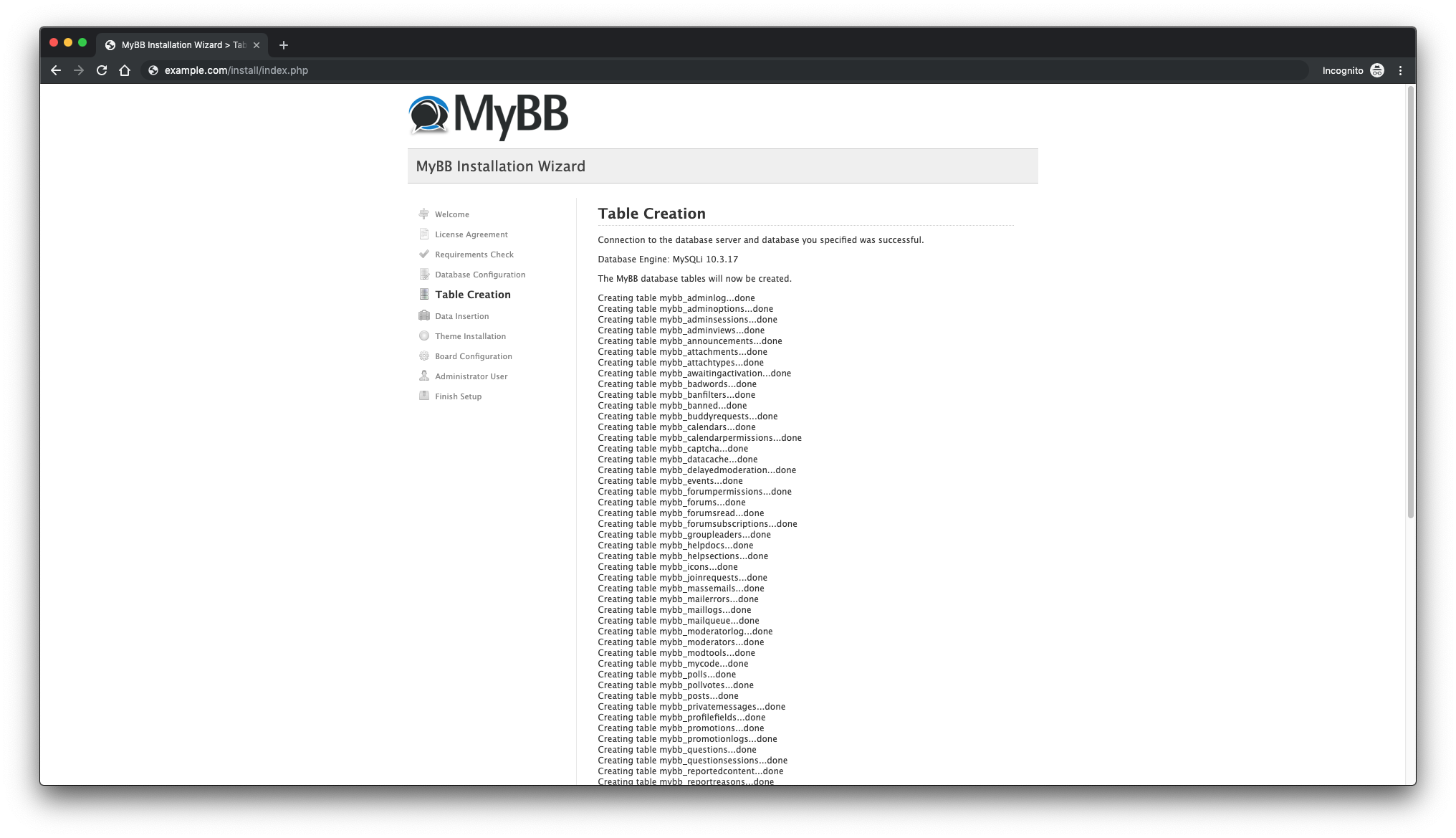
Populate database tables with default data, click “Next”:
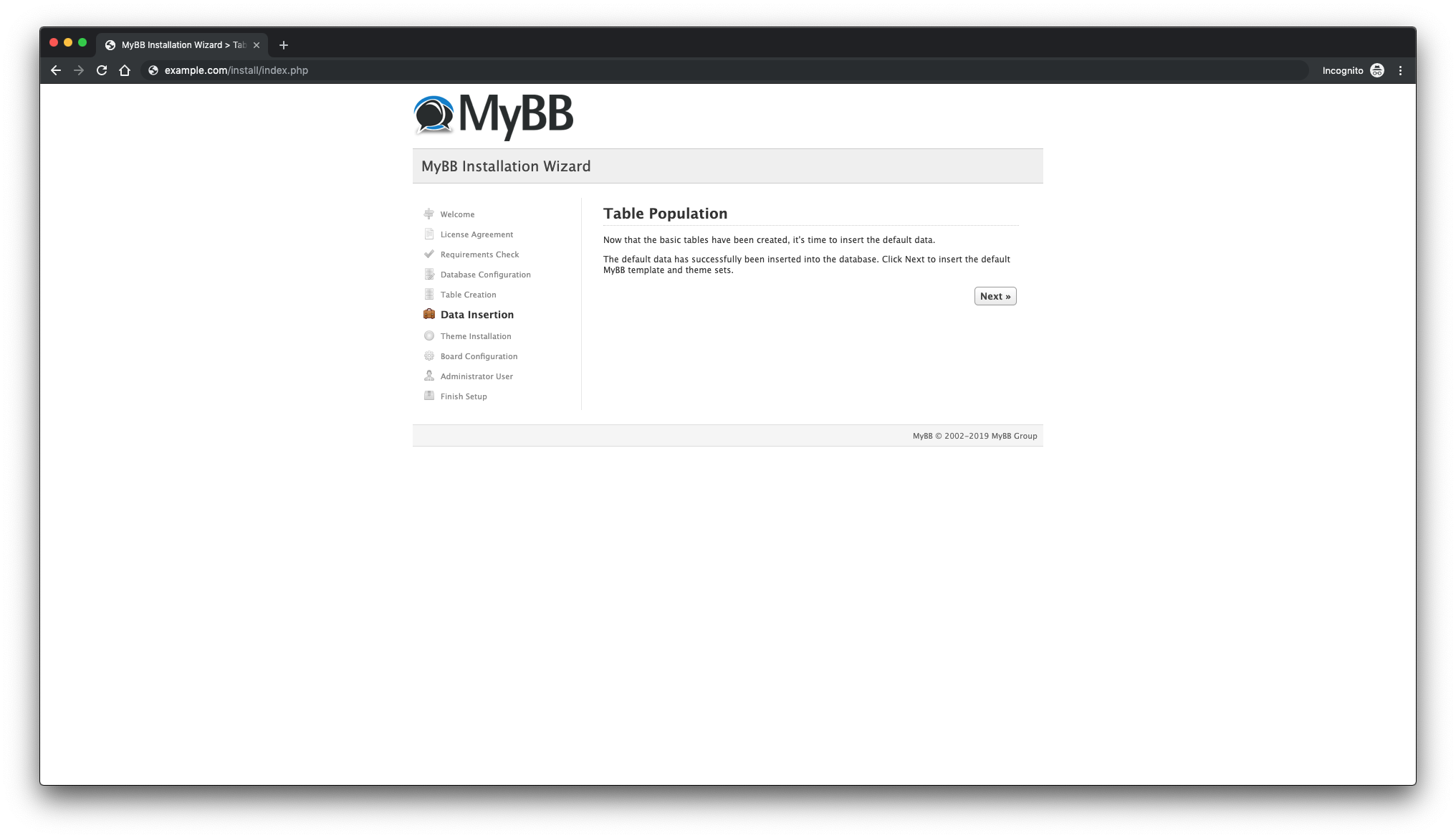
Load theme data into the forum by clicking “Next”:
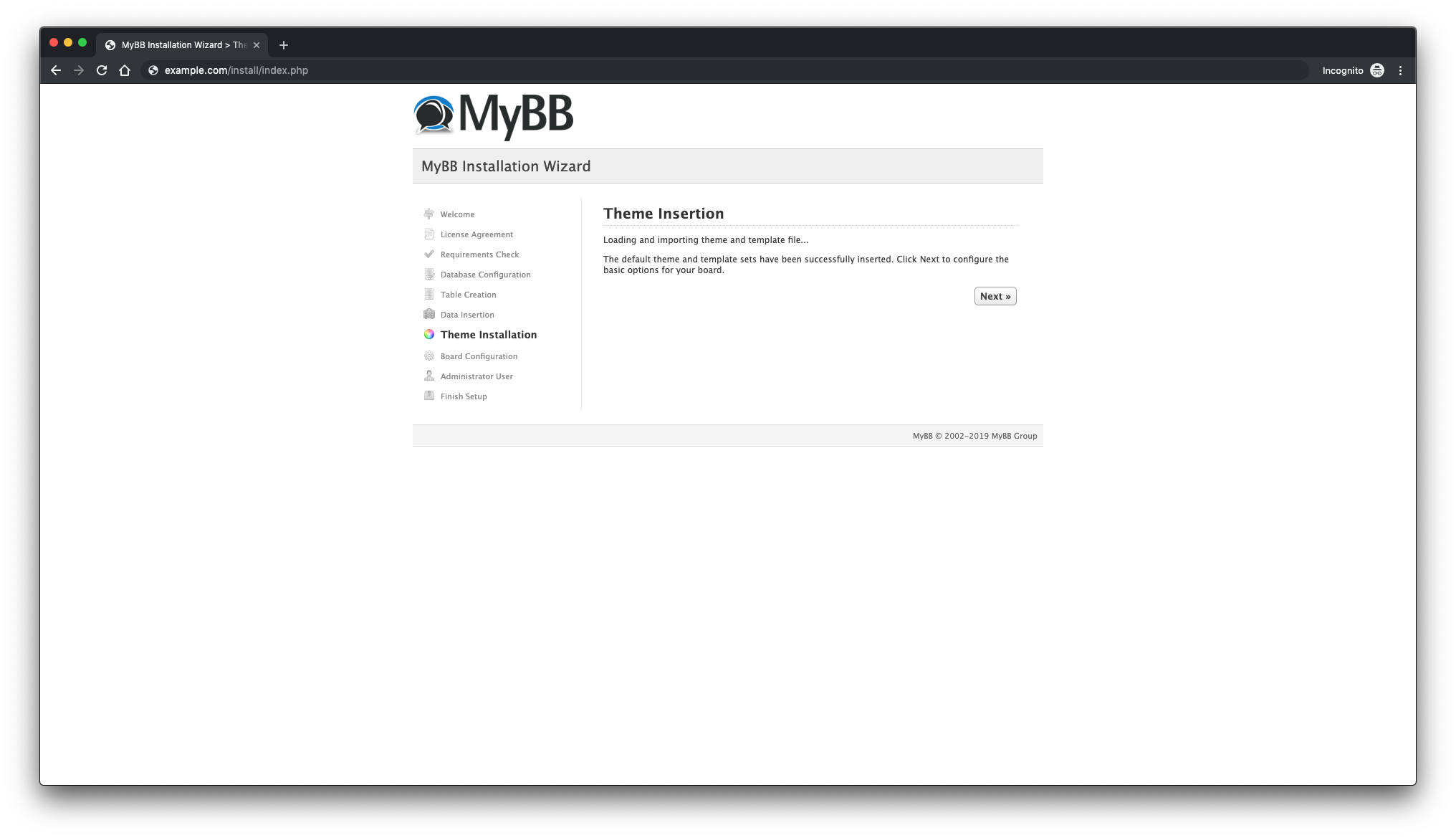
Configure basic board settings:
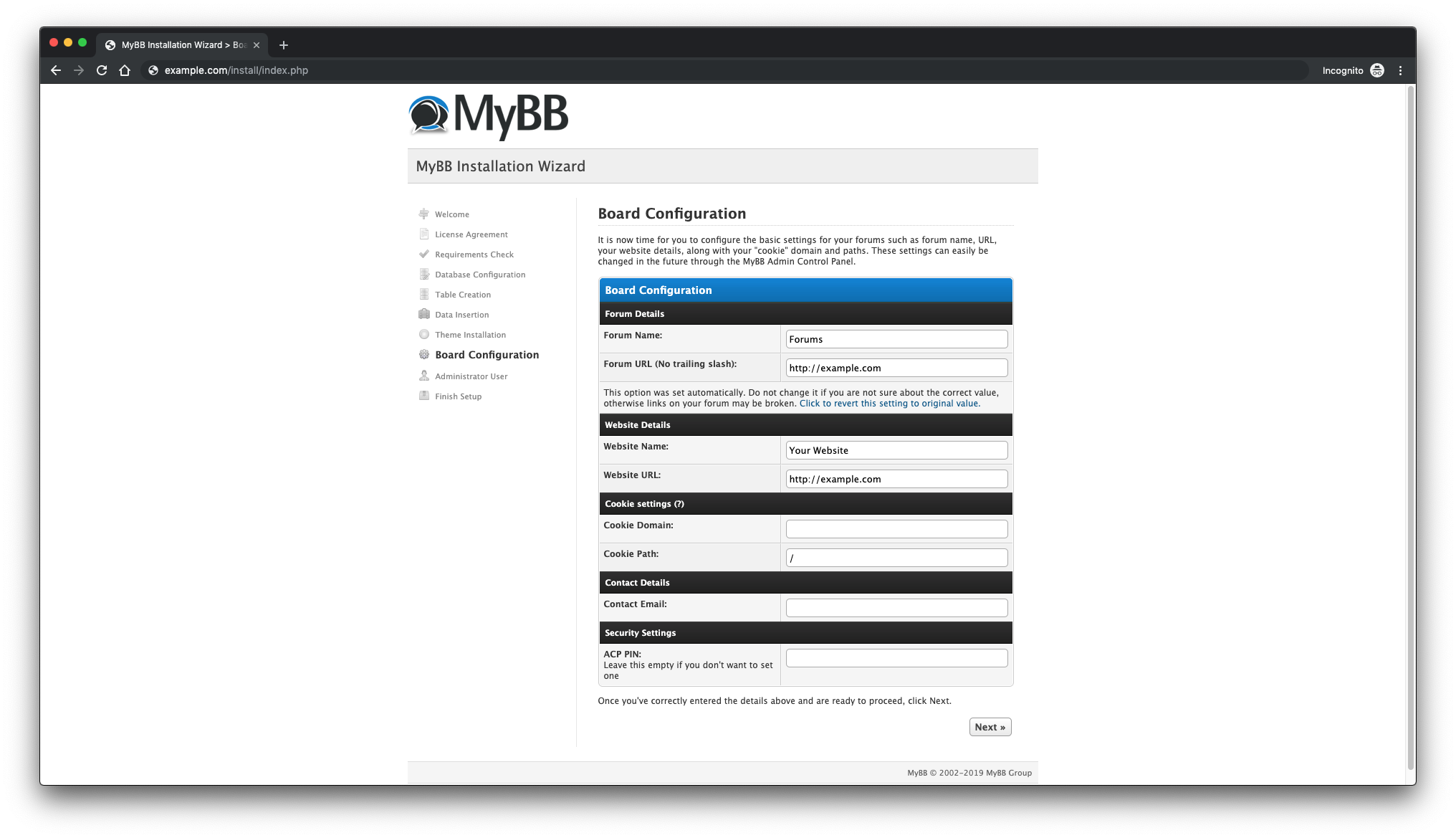
Create a MyBB administrator account:
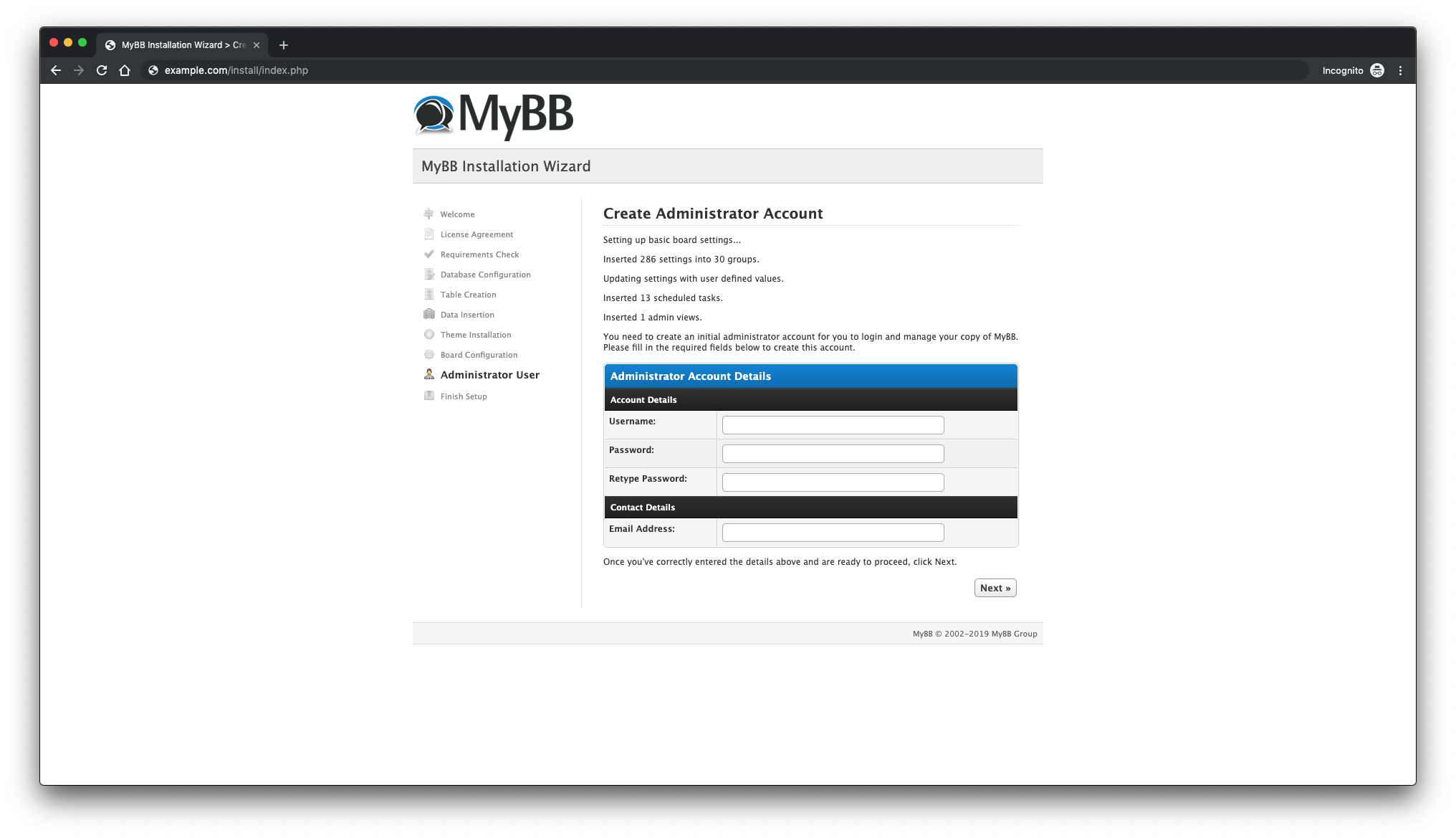
Upon successful completion, you will see the “Finish Setup” page:
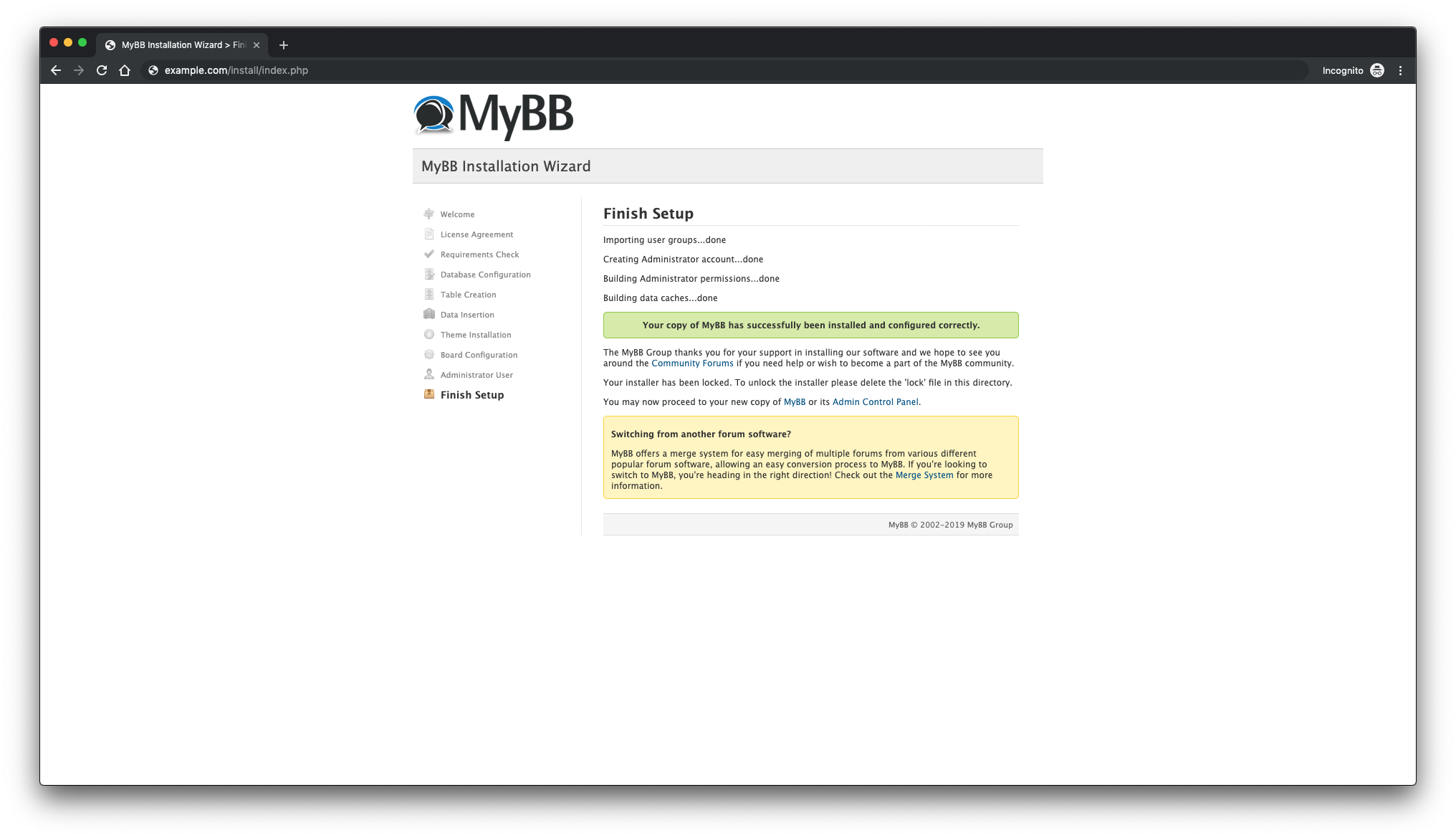
Access the admin interface by appending /admin to your URL:
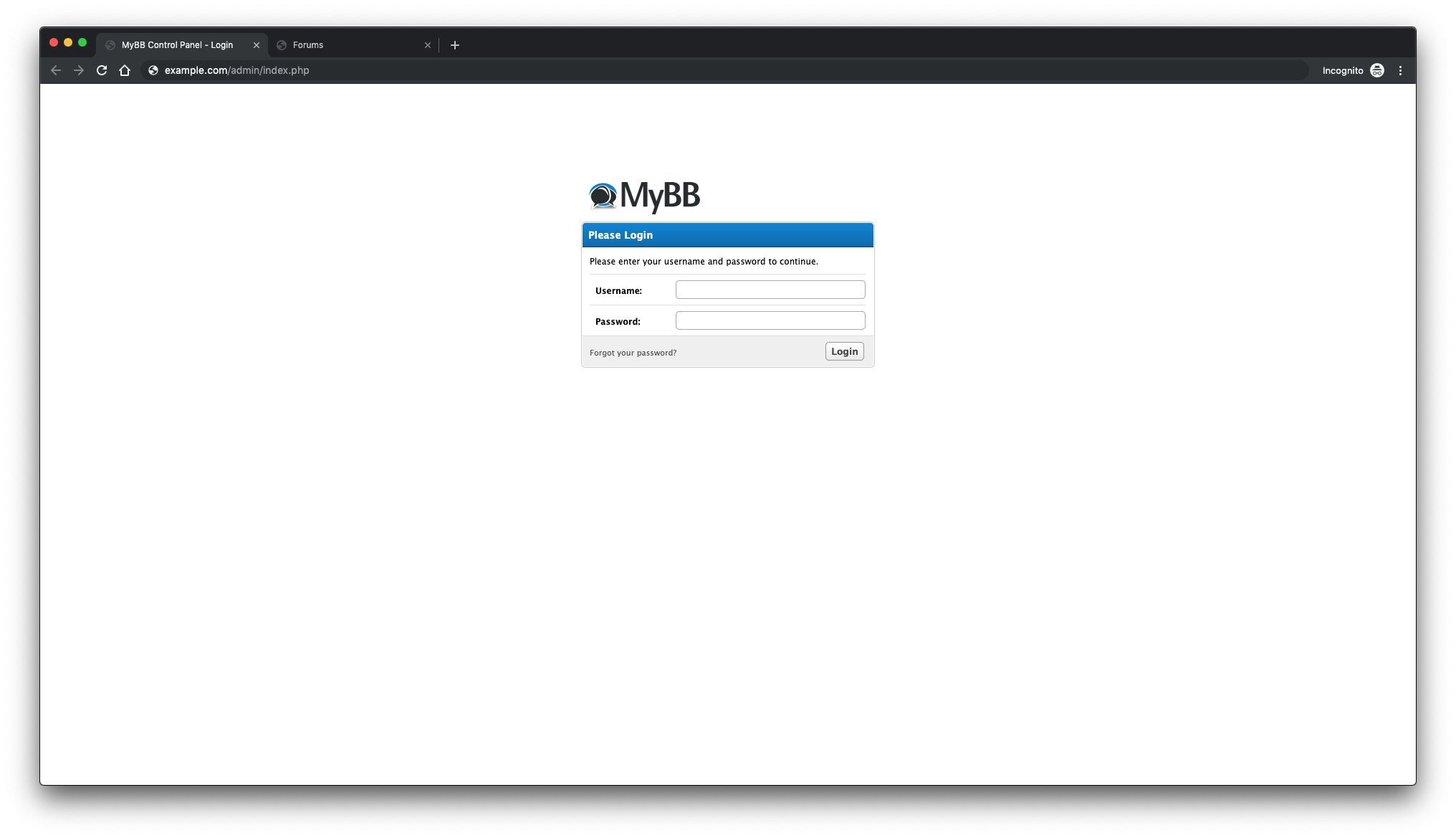
Your MyBB admin interface should look like this:
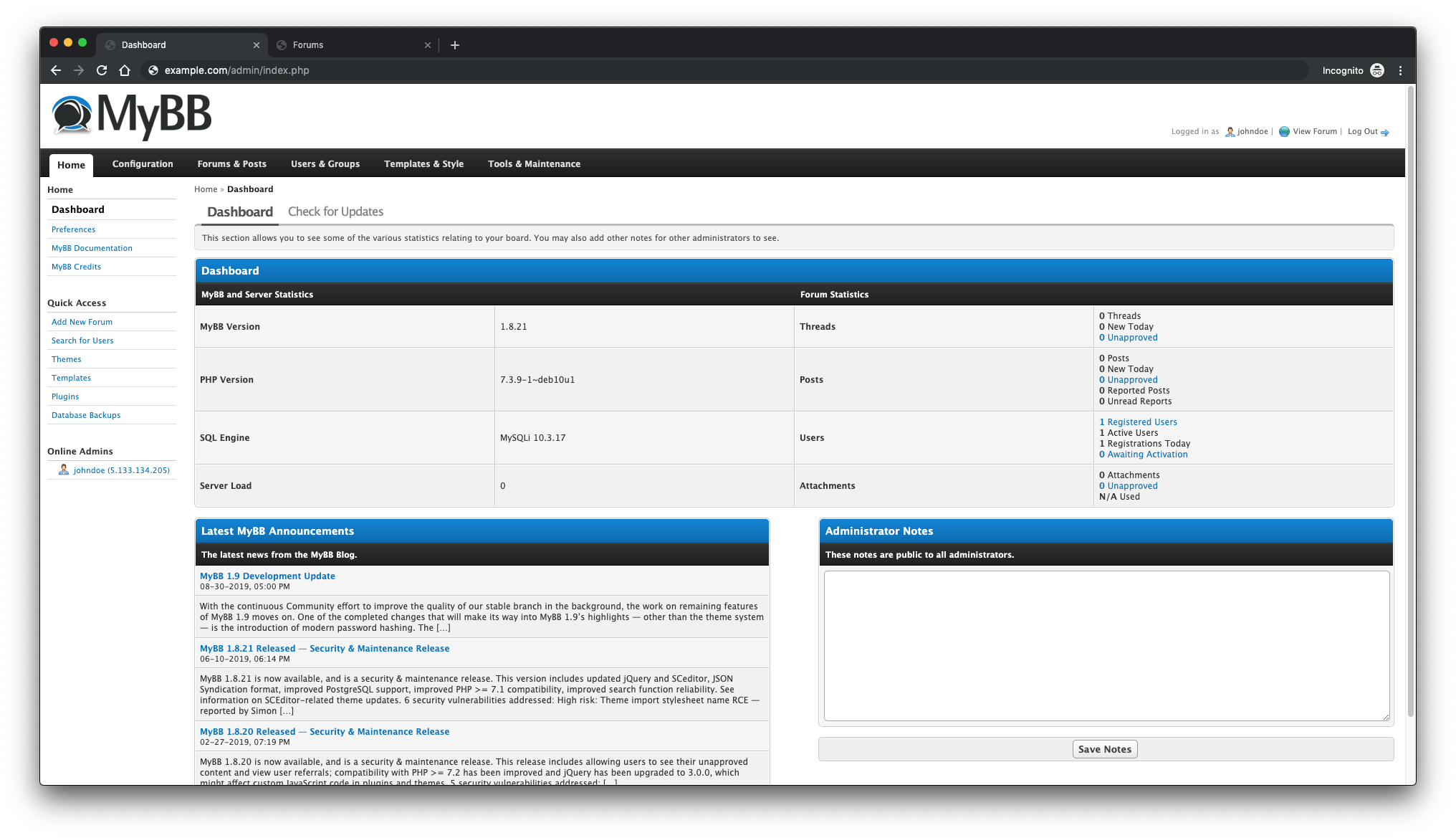
Here is a screenshot of the MyBB frontend:
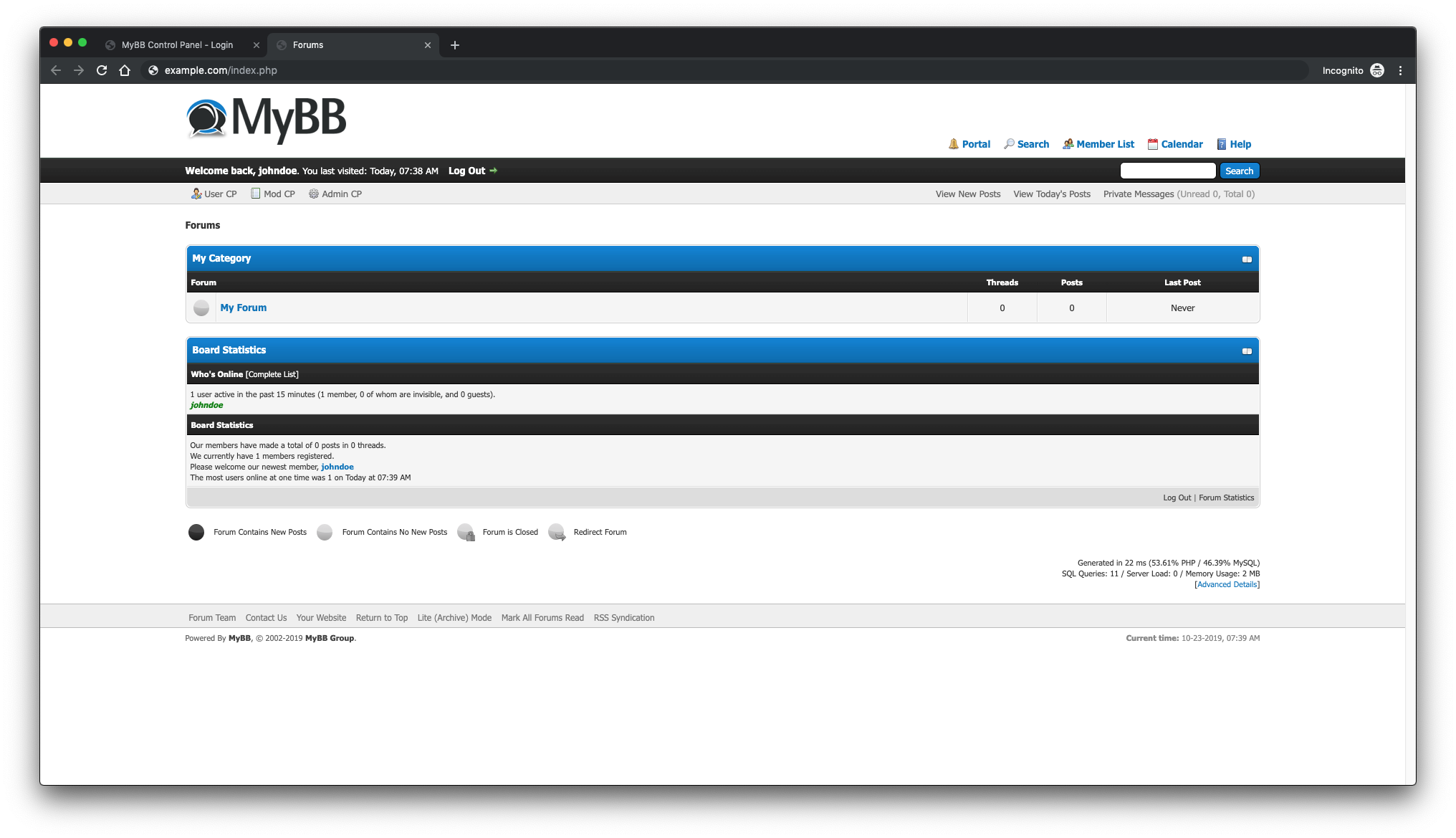
Congratulations! Your MyBB forum is successfully installed.
Links
FAQ
What is MyBB?
MyBB is a free, open-source forum software that is easy to use, highly configurable, and comes with a wide range of plugins and themes.
Why should I secure my MyBB forum with HTTPS?
Securing your forum with HTTPS helps keep user data secure and improves trust, especially when personal information or authentication details are involved.
Which database is recommended for MyBB?
PostgreSQL 10.0 or MySQL 8.0 are highly recommended, although older versions are compatible.
How do I access the MyBB admin panel?
To access the MyBB admin panel, append /admin to the URL of your MyBB site.
Can I automate Certificate Renewals?
Yes, the acme.sh client is configured to renew certificates automatically every 60 days.
